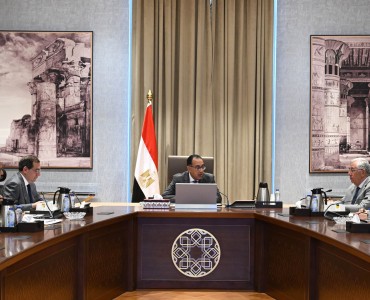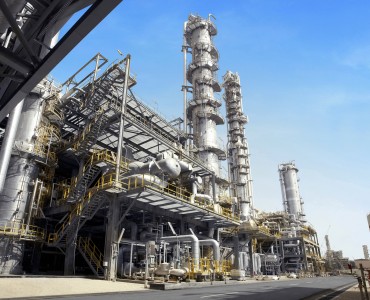Jordan and Egypt agreed to strengthen their commercial ties, through turning Jordan into a logistic hub making use of its location, according to Egyptian Cabinet spokesman, Magdi Radi.
The agreement followed a meeting between Prime Minister Marouf Bakhit and Commander-in-Chief of the Egyptian Armed Forces Field Marshal Mohammad Hussein Tantawi, who chairs the caretaker military council overseeing transformation in Egypt.
The two sides also agreed to convene a meeting of the Joint Jordanian-Egyptian Higher Committee and enhance cooperation in the fields of electricity and gas, Radi told the press, as quoted by the Jordan News Agency, Petra.
During the meeting with Tantawi, Bakhit conveyed His Majesty King Abdullah’s greetings and commended Egypt’s “sound and calm steps” to restore and maintain the country’s stability.
Bakhit said the visit reflects the strong and historic relations between the two countries and their commitment to continue to boost these ties, especially at this stage, Petra reported.
The premier also stressed the need for continued coordination and consultation between the two countries vis-à-vis the various Arab, regional and international issues.
Bakhit also voiced hope that Egypt will honour bilateral agreements signed between the two countries, especially those related to natural gas imports, commercial exchange and medicines.
At a meeting with his Egyptian counterpart, Issam Sharaf, Bakhit said Jordan is “fully confident that the noble ends of the Egyptian revolution will reflect positively on bilateral ties”, adding that his orders from King Abdullah were to discuss outstanding issues “with utter transparency and seek to overcome all obstacles… so that the two countries resume strategic cooperation in all fields”.
An attack on the Arab Gas Pipeline near Al Arish on February 5 disrupted natural gas supplies from Egypt to Jordan for five weeks, forcing the Kingdom’s power plants onto costlier diesel and heavy fuel oil reserves.
Gas supplies resumed on 19 March reached 200 million cubic feet a day.
According to an agreement signed between Cairo and Amman in 2004, Egypt is to supply the Kingdom with 240 million cubic feet per day at preferential prices, which the country relies on for 80 per cent of its electricity generation.
Egyptian press reports have said that officials within the incumbent administration in Cairo refuse to implement the deal under the current terms and conditions, especially the preferential treatment. Officials in Amman have declined to comment on the unconfirmed reports, but a senior energy official has recently held talks for several days in Cairo.
(Source: jordantimes)











